'We're stuck in Peru and the government won't help'
- Published
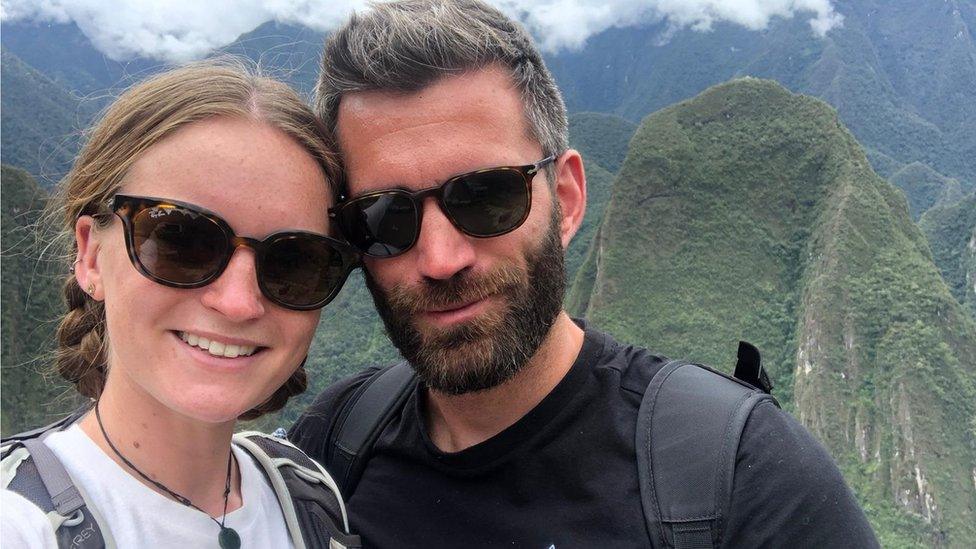
David Lillywhite (pictured with wife Leah) fears he will run out of medicine if he doesn't get back to the UK soon
"We can't go anywhere, we are stuck in our hotel - we are only allowed to go out to get food, money or medication," says 70-year-old Ffred Ffrancis from Wales.
"I have a heart condition, so being at high altitudes it is fine for a few days but we don't know long how we'll be here for."
Mr Ffrancis and his wife Meinir are among 400 UK tourists currently stranded in Peru after it closed its borders on Sunday to contain the coronavirus and flights were suspended.
Some who spoke to the BBC said they faced serious health problems, others that they were running out of cash.
Many also feel UK government is not doing enough to get them home at a time when other nations are funding the high costs of repatriations.
The Ffrancises were on a trip of a lifetime across South America when they arrived in Cusco, in the Peruvian Andes, on Saturday, only to learn that the government had declared a national emergency, with the borders locked down for 15 days or longer.
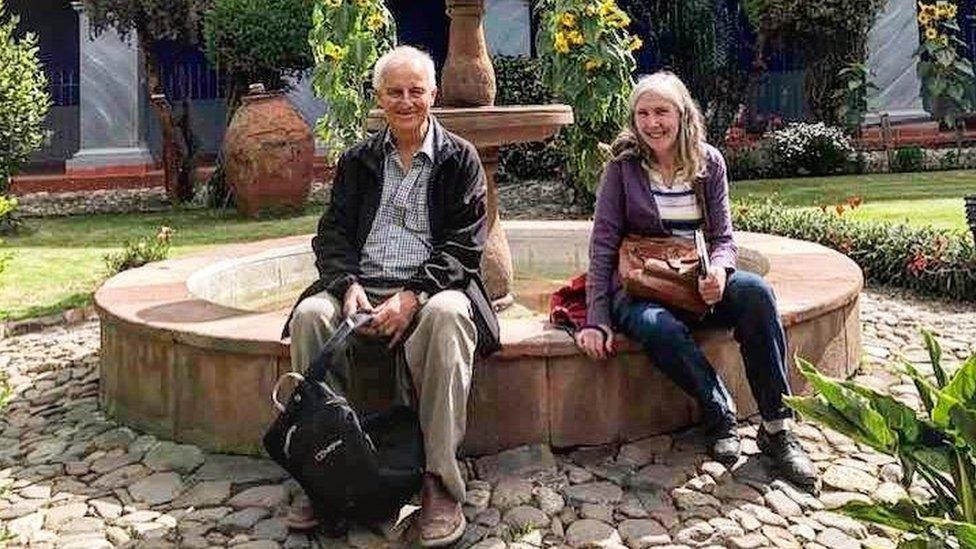
Ffred and Meinir Ffrancis are among 400 UK tourists currently stranded in Peru
"No one can get in or out of the country, there are police-enforced curfews, public transport has been shut down," Mr Ffrancis told the BBC.
"We have enough money to stay here if this goes on longer than 15 days, which it will, but there are young people in youth hostels in a far more precarious situations," he said.
"It seems the UK government has made no contingency plans - there has been a lack of international co-operation."
Tourists 'must pay for airline tickets'
Foreign Secretary Dominic Raab has said he is asking the Peruvian authorities to lift restrictions so rescue flights could start bringing people home.
But the government says tourists must pay for their own airline tickets home once a flight becomes available.
So far, the only commercial carrier to have offered to help is charging $3,000-$3,500 (£2,570-£3,000) for a one-way ticket - almost 10 times the normal price.
The stranded Brits say many cannot afford to pay those prices, and that the government has effectively "washed its hands" of its responsibility. They also note that both Germany and Israel are paying to repatriate citizens stranded because of the coronavirus outbreak, while other countries like Norway and France are working on rescue plans.
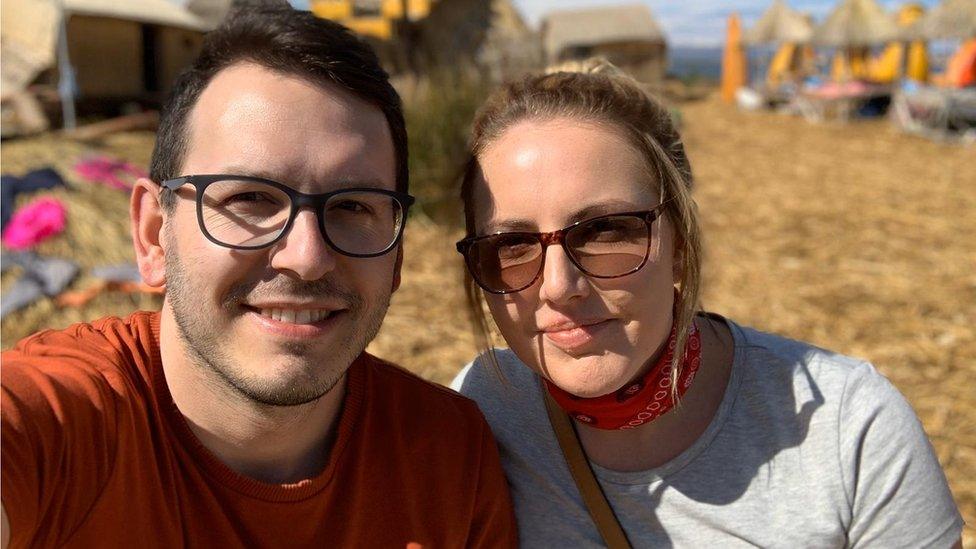
Danielle Cook has learned that her father has recently passed away (pictured with partner Matthew Houghton)
Danielle Cook, 32, and her partner Matthew Houghton, 34, from Yorkshire are also stuck in Peru, and to make matters worse her father passed away a few days ago.
"My family has not been able to make any funeral arrangements and I feel so guilty being here," she says.
The couple and nine others, including Dutch and Canadian travellers, had gone to Peru to see the mountain Machu Picchu, but they are all now holed up at an Airbnb in Cusco.
"We were all angry about the [offer of the] $3,000 flights because it felt we were being exploited," she says. "But we are also worried about how we pay for our Airbnb if this goes on for a long time.
"I appreciate the virus has created a crazy situation in the UK, but the government has not stepped up."
David Lillywhite, who along with wife Leah is stuck in Peru, has an immune deficiency disorder and is worried he will run out of medicine if he doesn't get home soon.
"I rely on a weekly infusion, and without it I will be very much at risk," he told the BBC. "The British Consulate advised us to get in touch with a medical centre here, but they do not have the medication in Cusco."
He says there has been a general lack of communication from the UK government, which has shut down its embassy in the Peruvian capital, Lima.
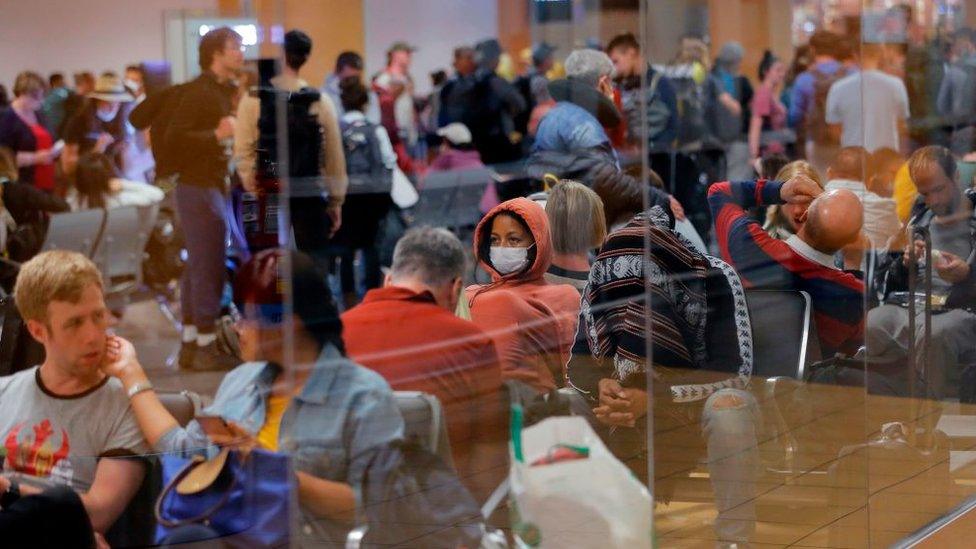
Travellers attempted to leave Lima airport before the abrupt shutdown earlier this week
The Transport Secretary Grant Shapps spoke to airlines and airports on Wednesday and said the government expects to announce a series of support measures shortly.
He also urged any British passengers overseas planning to return to the UK soon to "take account of the fast-moving situation and plan accordingly while flights remain available".
Airlines UK chief executive Tim Alderslade said: "We are working round the clock to bring home passengers stranded overseas, and will continue with these efforts.
"We do urge passengers to check their airline's website and where there are options to come home take them as soon as they can."
- Published19 March 2020
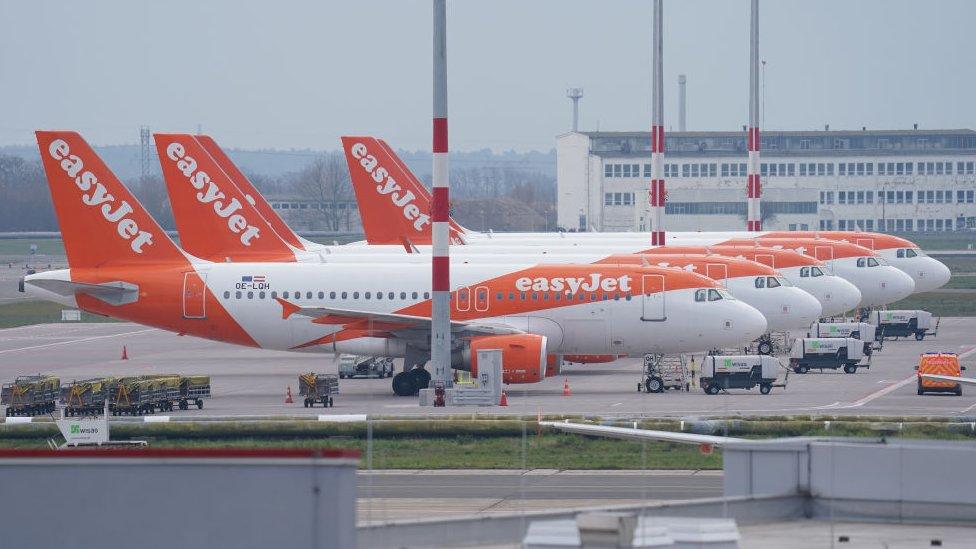
- Published18 March 2020
